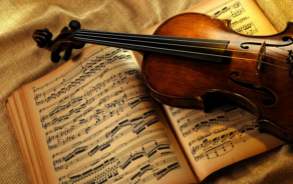Music has always been a mirror to society, reflecting cultural shifts and technological advances that shape the way we live and connect. In the modern era, music has evolved drastically, blending traditional genres with digital innovation, and has become more diverse, accessible, and collaborative than ever.
- Genre Fusion and Experimentation
In the past few decades, genre boundaries have blurred, creating hybrid genres like hip-hop jazz, electro-pop, and country rap. Artists feel freer to blend influences, using diverse sounds to express their identity and experiences in new ways. This openness has helped artists like Billie Eilish and Lil Nas X, who defy conventional genre norms, attract global followings. - Digital Creation and Production
Digital tools and software have transformed music production, allowing artists to record, produce, and release music without needing traditional studio settings. Programs like Logic Pro, Ableton Live, and GarageBand have democratized music creation, enabling independent musicians to create high-quality tracks from their homes. This shift has given rise to bedroom pop and DIY music scenes that can reach mainstream audiences. - Streaming and Accessibility
Streaming platforms like Spotify, Apple Music, and YouTube have redefined how people access music. Rather than buying albums or listening to radio playlists, listeners can explore millions of songs with a few taps, creating playlists that suit their unique tastes. This has empowered artists globally, enabling exposure to international markets previously beyond reach. - The Role of Social Media
Social media platforms like TikTok, Instagram, and SoundCloud have redefined music promotion, allowing artists to build fan bases without traditional record label support. Viral songs on TikTok, for example, can propel unknown artists into the limelight, as seen with Lil Nas X’s “Old Town Road.” Fans can engage directly with musicians, providing real-time feedback and creating a collaborative atmosphere between creators and listeners. - Globalization of Sound
Music in the modern age is more global than ever, with artists drawing inspiration from cultures worldwide. Genres like K-pop, Afrobeats, and Latin reggaeton have seen massive growth and influence, breaking into Western markets and creating a multicultural blend of sounds that appeal to global audiences.
Rauf says: The evolution of music in the modern era has been dynamic and transformative. Technology, globalization, and new platforms for discovery have democratized the industry, allowing music to evolve faster than ever and fostering a diversity of sound and expression that resonates worldwide.

No responses yet